Zero Emission Program
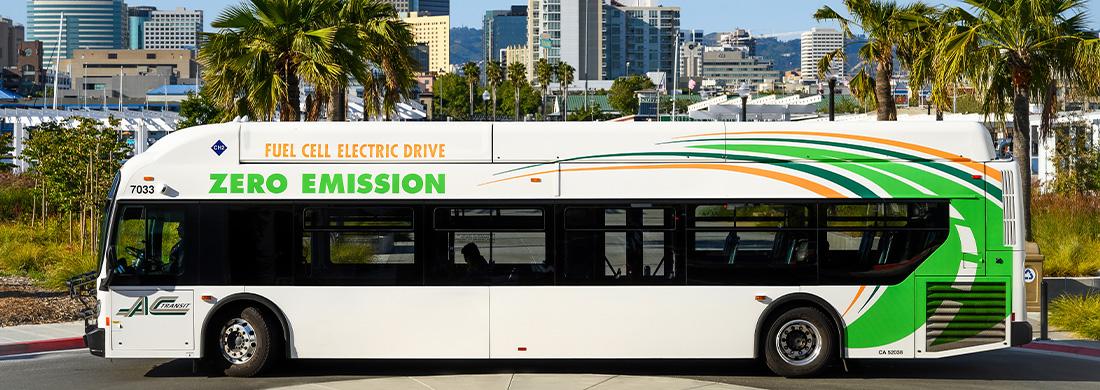
The Future of Transit: AC Transit’s Zero Emission Bus Fleet
Since 1999, AC Transit has been at the forefront of reducing greenhouse gas emissions from transit vehicles. Thanks to our innovative approach and willingness to take risks, we are on track to achieve a 100% tailpipe emission-free fleet ahead of California’s 2040 mandate. Our trailblazing journey began with a single hydrogen-powered bus, and over the past 25 years, we have expanded our fleet to include hydrogen fuel cell electric and all-electric buses.
In the process, our maintenance protocols have ensured the longevity of zero emission propulsion systems beyond manufacturer specifications, we have developed a comprehensive manual for zero emission bus maintenance, conducted a Stanford University-supported study on all existing industry propulsion systems, and now we lead in zero emission training. What began as a small vision has blossomed, with 10% of the buses operated by AC Transit being zero emission. To track our progress and gain more insights into our zero emission advancements, please refer to the 2024 Zero Emission Program Annual Progress Report.
Welcome to Zero Emission Bus University (ZEBU)
At the core of ZEBU is AC Transit’s renowned workforce development program, recognized by the state of California and the federal government for excellence in technical training, career development, and apprenticeships. We have also launched the nation's first transit-collegiate partnership with Chabot College, paving the way for innovative learning in zero emission transit.
Continue reading to learn more about how AC Transit is leading the future of zero emission technology and transit workforce training.
A Pioneering Partnership
A key feature of ZEBU is its strategic partnerships, notably Progress in Action (PIA), a leadership collaboration between AC Transit and the Amalgamated Transit Union Local 192. Thanks to the efforts of the PIA, a groundbreaking partnership with the Chabot–Las Positas Community College District now allows AC Transit Maintenance Trainers to serve as instructors of record for the college district. This unique collaboration enables apprentices to earn half of the credits required for an Associate of Science degree, supporting both their vocational and academic growth.
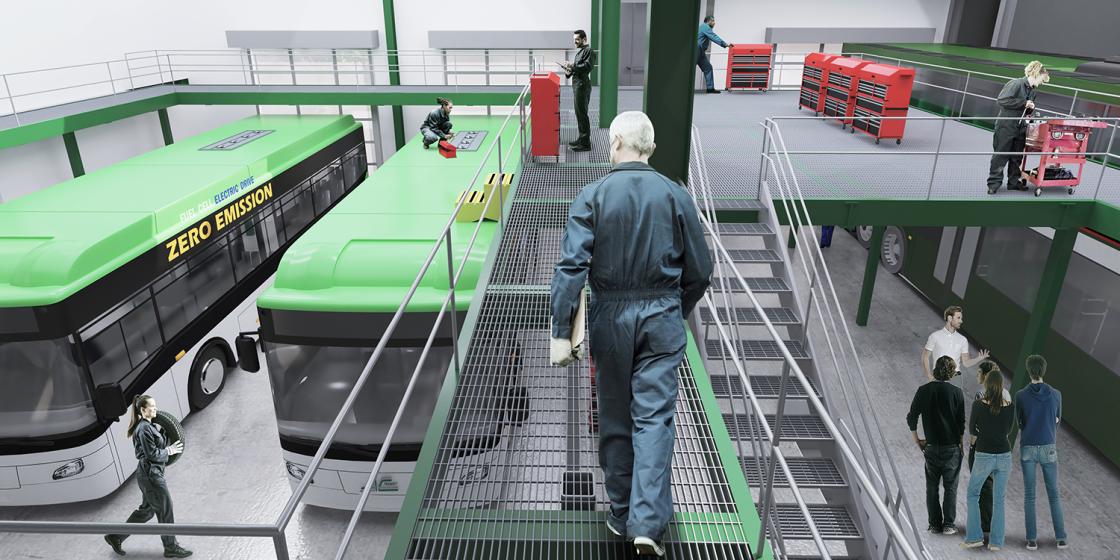
Historic Investments: The Fuel of ZEBU’s Workforce Development
For two consecutive years—2023 and 2024—the FTA has championed AC Transit’s decades-long dedication to reducing and eventually eliminating our greenhouse gas emissions through two Bus and Low- and No-Emission Grant Awards (Low-No Grant). The 2023 award of $25.5 million is pivotal in transitioning our bus fleet to fuel cell-electric buses. This includes $16 million dedicated to reimagining our 1980s-era Training and Education Center into the new, state-of-the-art Zero Emission Bus University, along with an additional $1.275 million awarded for workforce development.
The 2024 award of $15 million continues this commitment by facilitating the replacement of diesel buses with zero emission buses and expanding hydrogen fueling infrastructure, with an additional $750,000 dedicated to workforce development, essential to building a skilled and adaptable workforce that can meet the evolving demands of modern transit systems.
2023: $25.5MM Low-No Grant
- $16MM for Training and Education Center rehabilitation
- $8.2MM for fuel cell buses
- $1.275MM for workforce development
2024: $15MM Low-No Grant
- $750,000 for workforce development
- $14.25MM for zero emission buses and facilities

Benefits
- Jobs: ZEBs bring good paying green jobs to our community.
- Better Ride: Compared to diesel technology, ZEBs reduce fatigue because of reduced noise and vibration. It’s smoother for riders too!
- Quieter: ZEBs are quiet and reduce ambient noise while traveling through the East Bay’s residential neighborhoods.
- Cleaner: ZEBs are proven to be an effective way for communities to reduce their carbon footprint. They have no tailpipe emissions—adios diesel exhaust gases!
- Healthier: ZEBs bring cleaner air to our communities, reducing particulate matter concentrations that can result in increased asthma rates and other negative health impacts.
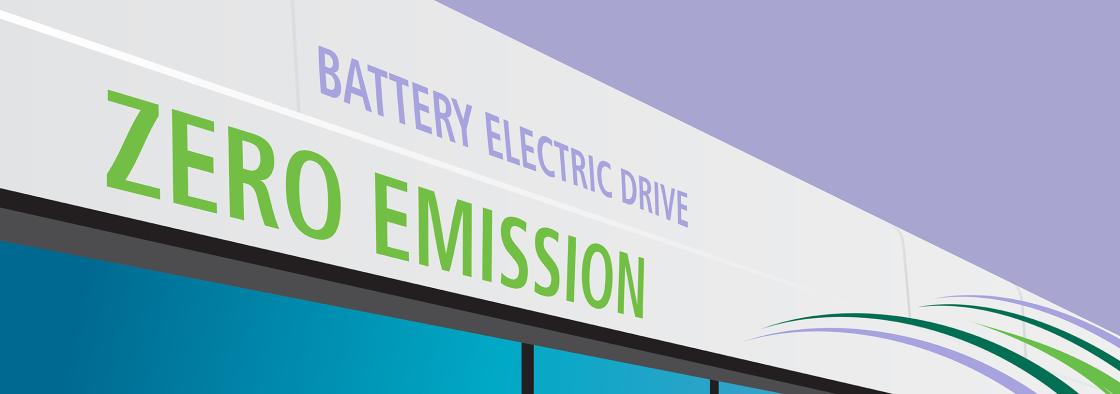
Zero Emission Buses on the Road
- Our Zero Emission Bus (ZEB) program generated over 5 million miles and eliminated more than 15,025 metric tons of CO2.
- 58 ZEBs: 30 Hydrogen Fuel Cell Electric and 28 Battery Electric - Buses.
- Oakland: vapor compression hydrogen station, with 9,000 gal hydrogen storage tank.
- Six 62.5kW battery chargers.
- Emeryville: liquid compression hydrogen station with 15,000 gal hydrogen storage tank.
- ZEB workforce training totaling 26,798 hours.
- 6.5 Million Zero Emission miles to date.
- $294 million invested in AC Transit's ZEB program.
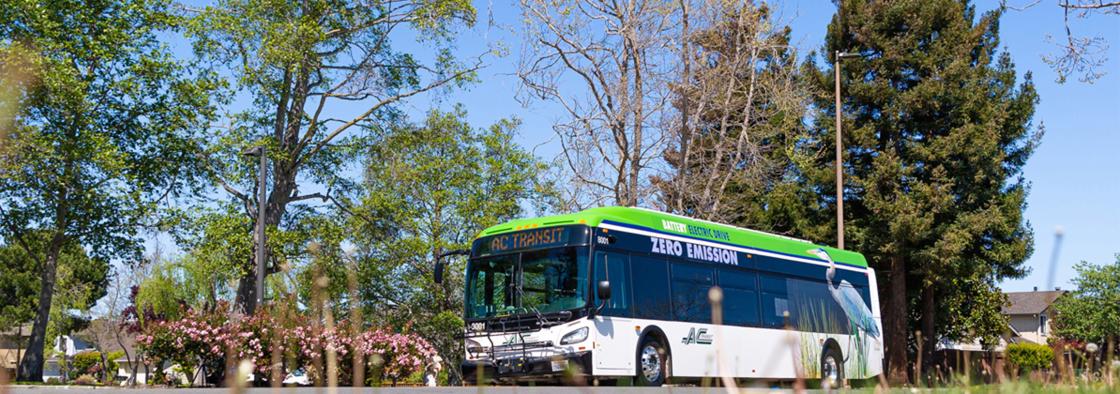
Funding
Funding for AC Transit’s Zero-Emission Bus program has come from various programs provided by the Federal Transit Administration and Department of Energy on the federal level, the California Air Resources Board, the California State Transportation Agency on the state level, and the Bay Area Air Quality Management District and Metropolitan Transportation Commission on the regional level. We are fortunate to have received significant funding to purchase zero-emission buses as well as design and construct hydrogen fueling stations and battery charging infrastructure to power the buses. The grants have enabled us to establish our Zero Emission Bus program and set us firmly on the path towards our goal of having a fully zero emission fleet by 2040.
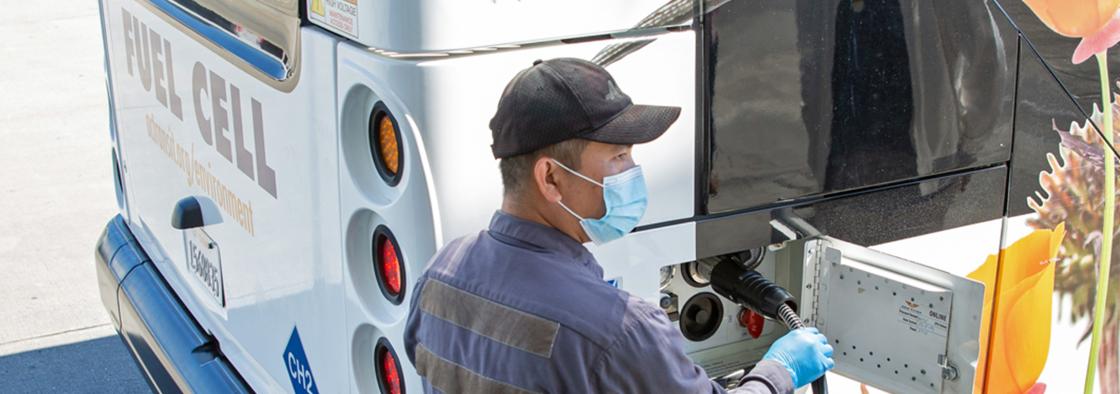
Zero Emission Program: 2024 Annual Progress Report
The Zero Emission Program Annual Progress Report expands on the two-year industry-leading Zero Emission Bus Technology Analysis, known as the 5x5 Study. The study includes the District's ZEB Program capital investment since inception and the financial forecast needed to deliver the complete fleet transition. Find our 2024 Annual Progress Report in the link below.
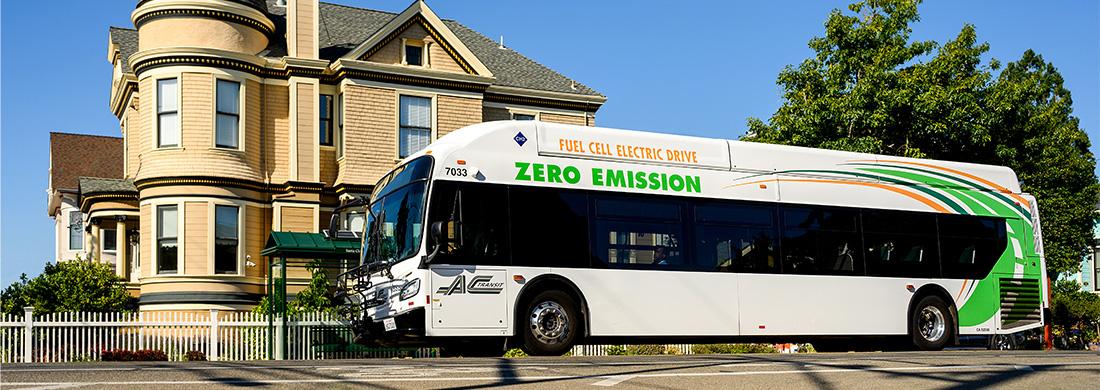
2040 Zero Emission Goal
In 2019, the California Air Resources Board (CARB) passed the Innovative Clean Transit Regulation, requiring all public transit agencies to transition to zero emission technologies by 2040. AC Transit is leading the way to a zero emission future by utilizing both battery electric and hydrogen fuel cell technology as we expand our fleet of zero emission buses. Learn how we are moving to a 100% zero emission fleet by 2040.
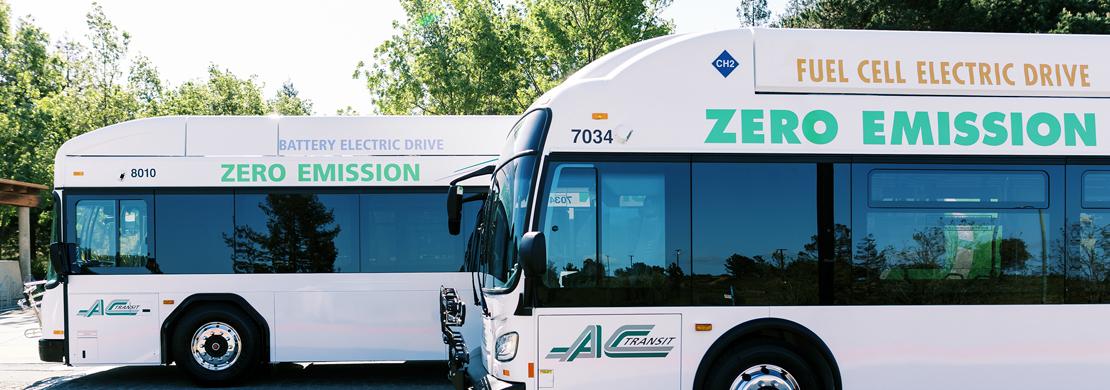
History of Leadership
AC Transit has a proud history of embracing environmental technology in our efforts to better serve our neighborhoods and has long been a recognized leader in this field, both nationally and internationally. Our first hydrogen fueling facility was opened in November of 2002 at our Richmond Division to operate a single 30-foot fuel cell electric bus. In 2006, we launched our first-generation fuel cell electric bus pilot program, operating three vehicles and a station out of our East Oakland Division. In 2010, we added 13 second-generation fuel cell electric buses to the fleet and opened a second hydrogen fueling station at our Emeryville Division. A solid oxide stationary fuel cell was added to our East Oakland Division in 2013. Then, the following year, we opened a new hydrogen fueling station on the site. In 2017, our fuel cell power plants surpassed the Department of Energy and Federal Transit Administration’s target numbers of 25,000 hours of operation.
Then in 2019, AC Transit embarked on a true side-by-side comparison—incorporating five battery electric buses and seven charging stations into our expanding fleet of ZEBs. We will be running hydrogen and battery electric vehicles in identical service to collect real-world performance data for comparison—and to determine which technology performs better to meet the needs of our service as we move towards a complete zero-emission fleet by 2040.
More from AC Transit
New Real-Time Prediction Engine
AC Transit has launched a new and improved prediction engine to enhance real-time bus arrival information. This upgrade will boost prediction accuracy by about 20% across our web-based tools, the AC Transit Official App, third-party GTFS-based apps and websites like Google Maps and Transit App…
AC Transit Secures $144 Million for Hydrogen Infrastructure and Zero Emission Bus Fleet
For more than two decades, the Alameda-Contra Costa Transit District (AC Transit) has pioneered zero emission bus deployment, even developing the industry's first academically supported roadmap for bus fleet transition and maintenance. We are therefore honored that the Alliance for Renewable…
AC Transit Unveils Latest Zero Emission Roadmaps: ZETBTA Volume 3, ZEB Transition Plan
For more than 20 years, AC Transit has been a leader in the adoption and advancement of zero emission technology. With the release of two exciting new reports that outline next steps in the transition to a 100% clean air fleet, AC Transit is moving from vision to reality.
…AC Transit Marks Earth Day with New Zero Emission Fleet
AC Transit has been a leader in advancing zero emission technology for more than 20 years. This Earth Day we mark the next phase of our transition to a 100% zero emission fleet with the delivery and launch of more than 40 new zero emission buses.
In our continued…
AC Transit Releases Second Iteration of Zero Emission Transit Bus Technology Analysis
AC Transit announces the release of the second version of our Zero Emission Transit Bus Technology Analysis (ZETBTA) study. Our current report tracks greenhouse gas emissions, cost per mile, fleet availability and other…
AC Transit Receives California Energy Commission Funding Award
AC Transit has been awarded more than $4.5 million to upgrade the District’s Hydrogen Fueling infrastructure at its East Oakland Bus Division by the California Energy Commission. The award was given in response to a 2020 grant solicitation for zero-emission transit fleet infrastructure…